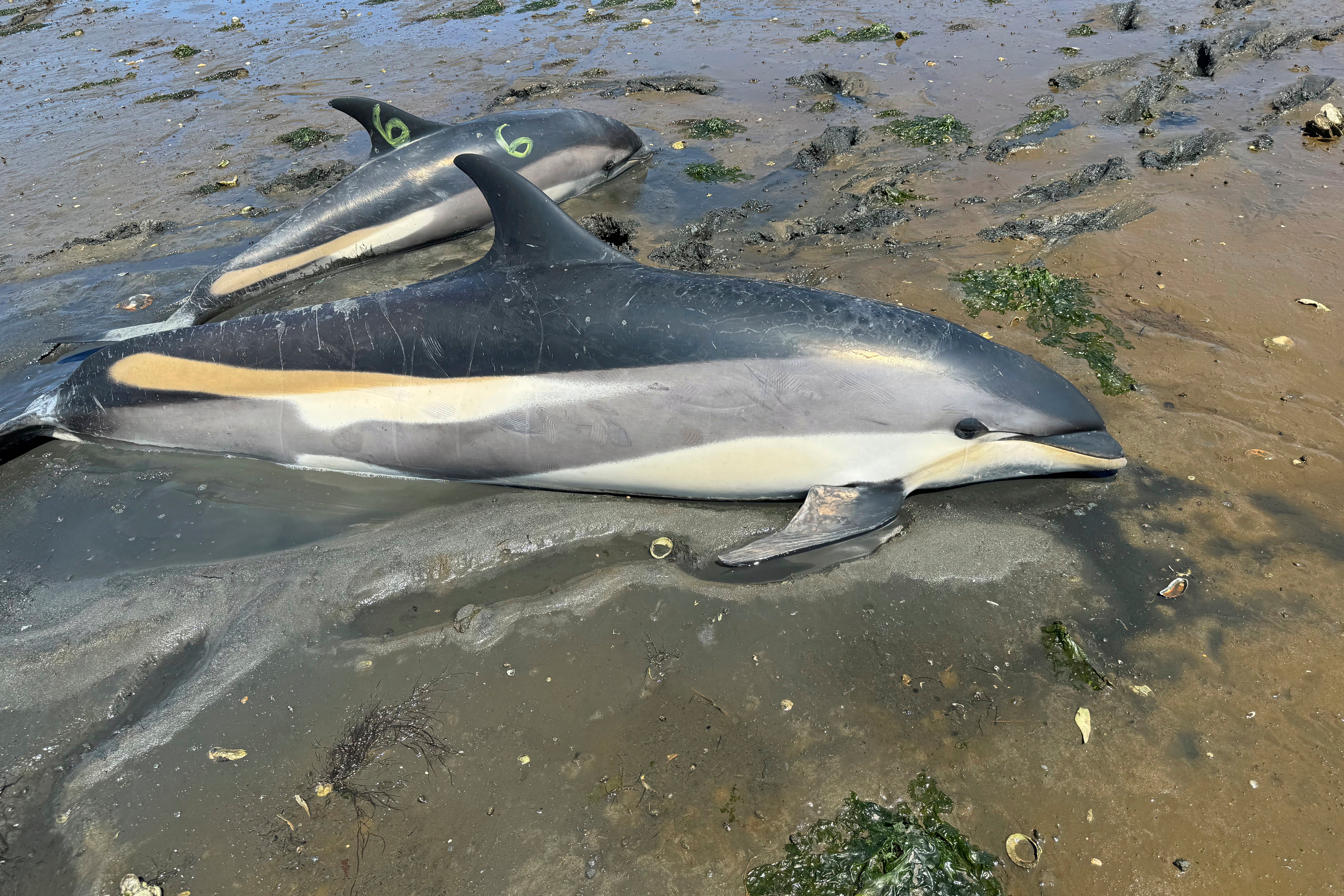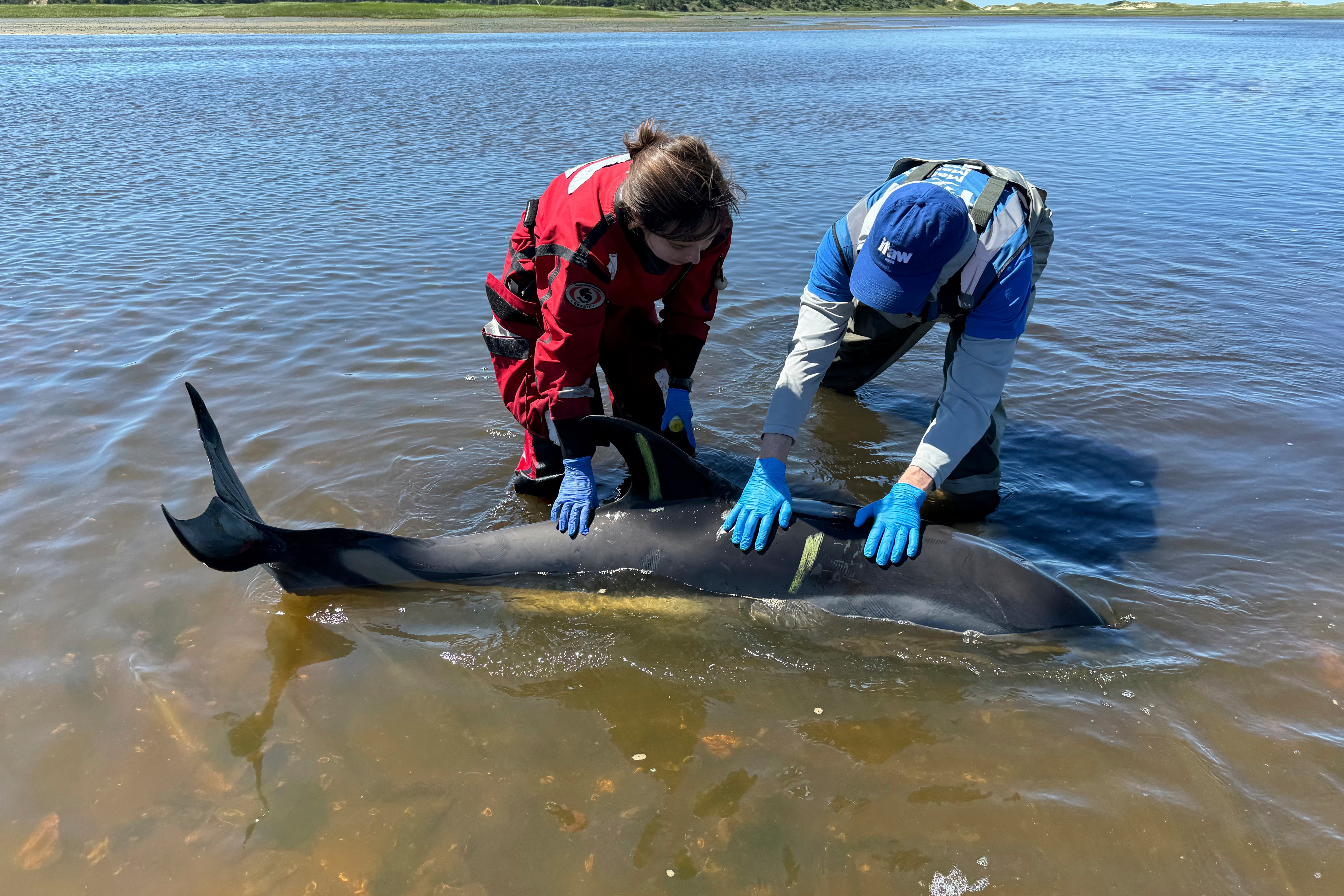Mystery dolphin mass stranding found to be the largest in US history
There’s no set reason for why the dolphins became stranded

Your support helps us to tell the story
From reproductive rights to climate change to Big Tech, The Independent is on the ground when the story is developing. Whether it's investigating the financials of Elon Musk's pro-Trump PAC or producing our latest documentary, 'The A Word', which shines a light on the American women fighting for reproductive rights, we know how important it is to parse out the facts from the messaging.
At such a critical moment in US history, we need reporters on the ground. Your donation allows us to keep sending journalists to speak to both sides of the story.
The Independent is trusted by Americans across the entire political spectrum. And unlike many other quality news outlets, we choose not to lock Americans out of our reporting and analysis with paywalls. We believe quality journalism should be available to everyone, paid for by those who can afford it.
Your support makes all the difference.Rescuers who helped free more than a hundred dolphins from the Cape Cod shoreline say they've confirmed that the mass stranding that began June 28 was the largest involving dolphins in US history.
There were two prior events on record in Hawaii and the Florida Keys where dolphin species were observed circling in shallow water, but the Cape Cod event marks the highest number of dolphins beached in a single stranding event, according to the International Fund for Animal Welfare, which helped lead the rescue.
There’s no set reason for why the dolphins became stranded.
A final review of data and aerial imagery this week revealed that a total of 146 dolphins were involved in the stranding, according to IFAW communications director Stacey Hedman.
The group estimated that 102 dolphins survived the multi-day event. There were 37 natural deaths and seven dolphins had to be euthanized.

Response efforts have continued on a smaller scale including the rescue, relocation, and release of nine of the same Atlantic white-sided dolphins on July 2.
On that day, 11 dolphins were found stranded near Powers Landing in Wellfleet, Massachusetts. Two were euthanized, and nine were transported in a custom-built mobile dolphin rescue clinic vehicle where veterinarians and biologists can administer fluids and other treatments on the way to a deeper water location, Hedman said.
In this case, she said, the dolphins were released near Herring Cove Beach in Provincetown. Satellite tags tracked several of these animals safely offshore.
Rescuers faced many challenges as they attempted to guide the dolphins back to open water, including difficult mud conditions and the dolphins being spread out over a large area.
During some of the rescue attempts workers started out on foot, herding the creatures into deeper waters and then used small boats equipped with underwater pingers, which make noise to help attract the creatures.
Several of the dolphins died at The Gut — or Great Island — in Wellfleet, at the Herring River. The Gut is the site of frequent strandings, which experts believe is due in part to its hook-like shape and extreme tidal fluctuations.
“This stranding response was a tremendous effort for our staff, volunteers, and partners over multiple days,” Hedman said, adding that with about a 70% survival rate, the group consider the response a success.
The organization has also received reports from whale watching vessels that have seen some of the dolphins — identified with temporary markings — now swimming among other groups of hundreds of other dolphins that had not been part of the stranding.
Those helping with the overall rescue effort included more than 25 staff from the IFAW and 100 trained volunteers. The group also had the support of Whale and Dolphin Conservation, the Center for Coastal Studies, AmeriCorps of Cape Cod and the New England Aquarium.